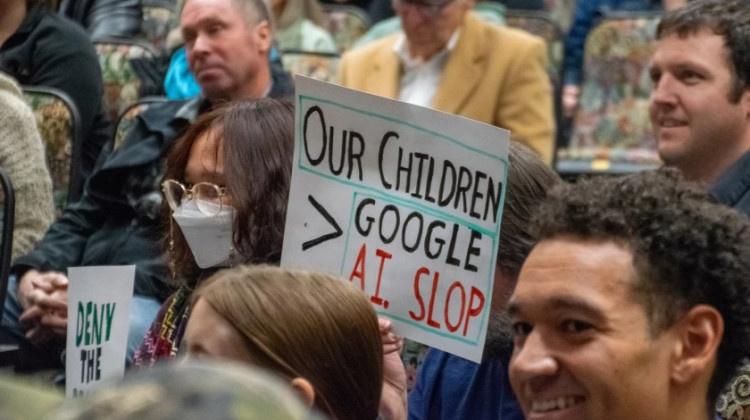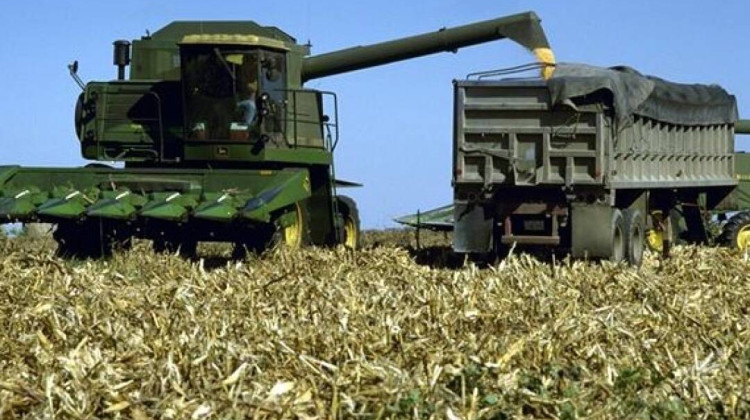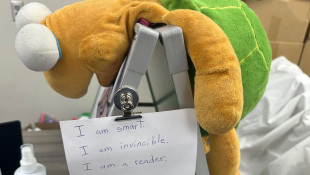Karinya Chrisler has no problem taking her 13-year-old son, Nicholas, to play basketball, but she isn’t lacing up her sneakers to get out there with him.
"Running back and forth up and down that court is not going to happen. Not for me," she said with a smile. "I'll cheer from the sidelines and give him all the support he needs, but as far as getting out there and doing that, I'm not doing that."
Nicholas loves basketball. He wants to turn his passion into a career one day. But, right now, he doesn’t have anyone to play with, not since his older brother committed suicide four years ago.
"I just knew him very well and I was really close to him," said the seventh grader. "When he was gone, I was just like 'I don't have anyone to relate to anymore.'"
After Nicholas lost his older brother, Karinya noticed a shift in his outlook.
"He got very depressed. He felt like he didn't have anybody anymore," said Chrisler. "I had to get him into counseling and getting him to talk to people at school. I did notice a difference with him and he was very sad and very unhappy for a long time because there was nobody to fill that gap and they were close."
Indianapolis Police Chief Rick Hite says when kids stop caring, or think they don’t have anyone who cares for them, it can become destructive.
"Young people out there are not listening to us," said Hite. "They are going to tell you when they need something, 'I'm going to get something. I'm going to get mine. I'm going to do what I have to do to survive because nobody cares about me' That's what they say when we pick them up, 'man, nobody cares about me. I'm going to die anyway. I ain't going to live until I'm 15.' We don't want to hear that."
Karinya doesn’t want her son to think he has no one, and knows Nicholas needs more than just her to fill certain voids, even ones that extend beyond the basketball court.
"Had he had somebody who he could relate to going into puberty, it might have been smother for him," she said. "I don't know if he has had any kind of difficulties because he isn't talking to me. I'm mom. But, I can only imagine."
So, the single mom reached out to Big Brothers Big Sisters to find Nicholas a male mentor.
"He has spent his entire life with me," said Karinya. "I just want him to develop a different part of himself that I can't help with."
But, connecting young men like Nicholas with a Big Brother isn’t always easy.
Right now, Big Brothers Big Sisters of Central Indiana has 600 kids on its waiting list, 70 percent are boys.
To increase volunteer participation, the organization recently launched a new campaign called “100 Men in 50 Days,” with the goal of having 100 new male mentors sign up.
The effort, which is halfway through, is being more aggressive in connecting with would-be Bigs through signup events, using social media, and recruiting through local businesses.
So far, Big Brother Big Sisters of Central Indiana CEO Darcey Palmer-Shultz is encouraged by the results with 65 new applicants over the past four weeks.
"A lot of our kids, what they talk about more than anything is the consistency of having somebody to go to, of having somebody who will listen to them, and having somebody who cares about them," she said. "That can be enough. So, we really work hard on that relationship in that role of a mentor because kids need more people like that in their lives."
And she believes having positive role models can help inspire young men like Nicholas and put a dent in the problems IMPD Chief Hite is worried about.
"There's been an increase in crime and there's been an increase in attention on trying to really help kids make positive choices, give them hope, and give them encouragement to make decisions that will set them up for a positive future" said Palmer-Shultz. "We are responding to that call to action."
And the call to action has been answered for Nicholas.
After two years, he recently found out he’s been matched and will finally have a big brother.
Palmer-Shultz hopes to have other success stories like his throughout the campaign which runs until May 28.
 DONATE
DONATE







 View More Articles
View More Articles


 Support WFYI. We can't do it without you.
Support WFYI. We can't do it without you.